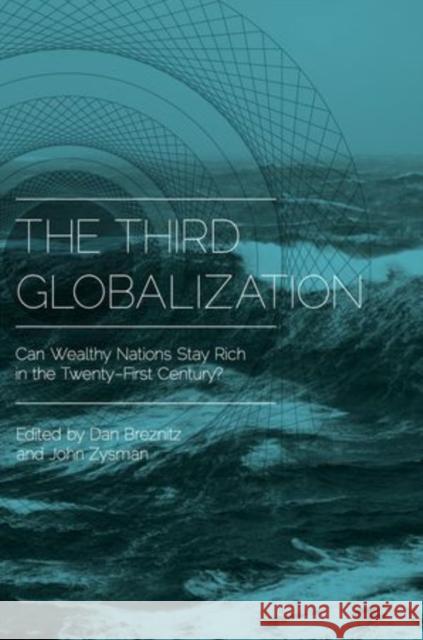The Third Globalization: Can Wealthy Nations Stay Rich in the Twenty-First Century? » książka
The Third Globalization: Can Wealthy Nations Stay Rich in the Twenty-First Century?
ISBN-13: 9780199917846 / Angielski / Miękka / 2013 / 432 str.
Given the powerfully negative and ongoing impact of the Great Recession on western economies, the question of whether historically wealthy nations--the US, Western European countries, Japan--can stay wealthy has become an overriding concern for virtually every interested observer. Can their middle classes remain comfortable as more and more good and technically jobs disappear to other parts of the world? Can they support themselves as they devote more and more economic resources to an aging population base? In The Third Globalization, eminent political economists Dan Breznitz and John Zysman gather some of the discipline's leading scholars to assess the prospects for growth and prosperity among advanced industrial nations.
Throughout, they examine the core transformation in the economies of the advanced countries, the character of the challenge from the emerging economies, and the varied policy responses of the advanced countries. And, via a series of case studies, the contributors consider the central challenges these countries face internally and the nature of their responses. In particular, they ask what governments might do to achieve the goal of generating and retaining highly productive economic activity, which they collectively regard as necessary for sustained growth. In total, the book directly challenges a number of core policy and academic assumptions about the dynamics of contemporary advanced economies by looking at the problem from three different angles: a) a macro perspective, which considers the forces changing the policy and political economy landscape after the crisis; b) a sectoral perspective, which explains how these forces unleashed major shifts within critical domains and industries; and c) a policy perspective that concentrates on the responses to the Great Recession of both the already rich nations and the new, game transforming, competitors such as China and India. All told, the book's powerful analysis of a current global problem--weak growth in the world's longtime growth engines--that is of concern to everyone will make this essential reading for scholars and policymakers from across the social sciences.










